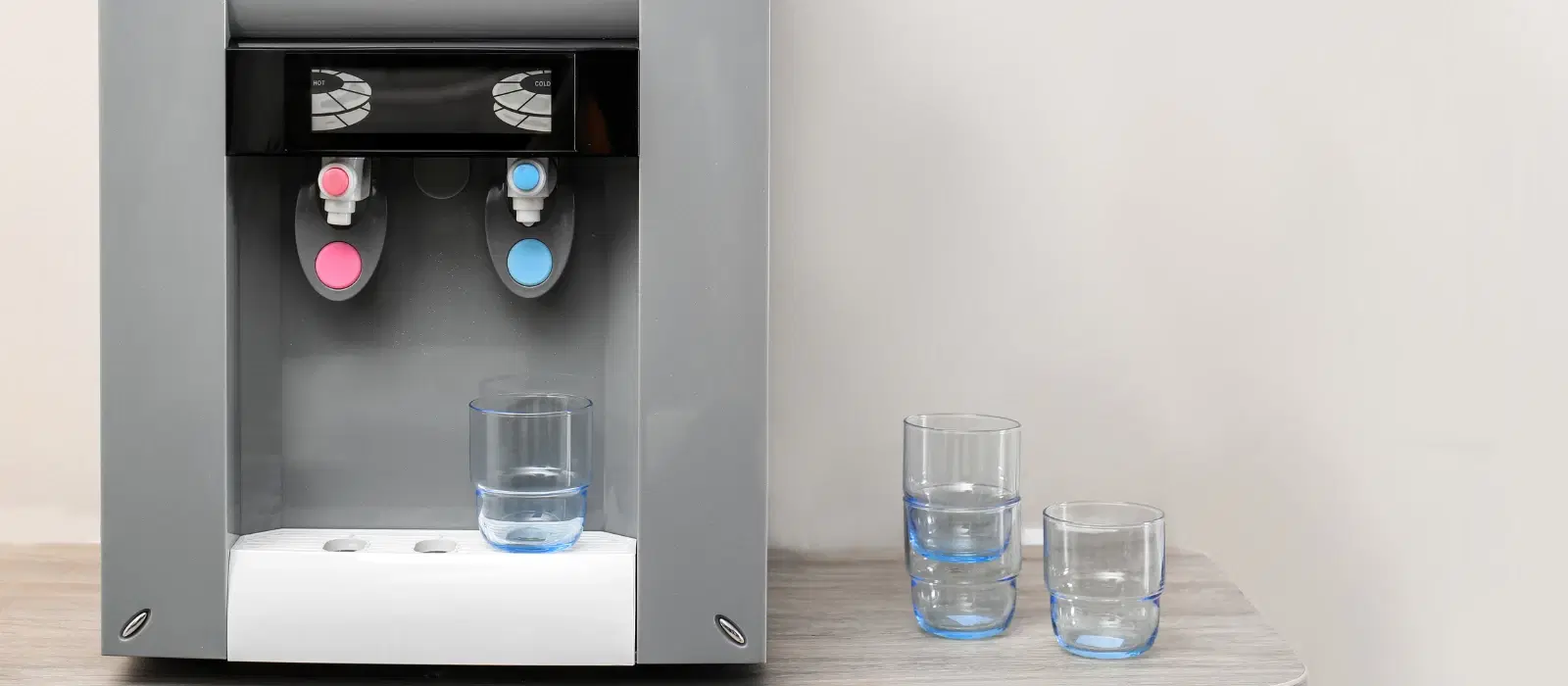
Home Appliances
•06 min read
(56)-25c67828-18cd-4db0-9abc-d8c9cdfed803.png&w=3840&q=75)
Clean water is the cornerstone of a healthy lifestyle yet millions still face challenges with contaminated supplies. Understanding the benefits and challenges of home water treatment systems can help you make an informed decision when it comes to choosing the best system that meets your daily needs. In this article, we explore the advantages and disadvantages of water purification, detailing various methods and highlighting both the health benefits and potential drawbacks, so every household can progress towards a healthier future.
Water purification is the process of removing impurities and harmful contaminants from water to make it suitable for consumption. Various techniques such as reverse osmosis, ultraviolet (UV) filtration, activated carbon filters, and gravity-based devices are employed to achieve this. Each method utilises different principles, whether it is physical filtering, chemical neutralisation, or biological treatment, ensuring that water becomes safe and tastes better.
The importance of clean water cannot be understated. Safe water is essential for maintaining good health, preventing waterborne diseases and providing an overall improved quality of life. Concerns about pollutants and contaminants in everyday water supplies have led many households to consider home water treatment systems. These choices directly impact both individual well-being and environmental sustainability, reducing reliance on plastic bottles and minimising waste.
Examining the advantages and disadvantages of water purification reveals significant health benefits. Purified water drastically reduces exposure to harmful chemicals and contaminants, therefore lowering the risk of diseases. This process also contributes to improved hydration and overall body function, while benefits of water filtration help ensure that each glass of water not only hydrates but also nourishes your body without toxins.
Another clear water filter advantage is the enhanced taste and odour of water after purification. By eliminating chlorine and other chemicals, these systems deliver a fresher drink that encourages you to stay well hydrated throughout the day. This improvement in the sensory quality of water is particularly noticeable when compared with tap water, which may have an unpleasant aftertaste.
Did You Know? Using a home water purification system can save you up to 1,500 plastic bottles per year. Not only is it better for the environment, but it also saves you money in the long run.
(54)-2681862d-e12f-49cf-a22f-50c57e1aeae1.png&w=3840&q=75)
The environmental benefits of water purification are compelling. By installing a reliable home water treatment system, you can dramatically reduce your household's plastic waste. This contributes to long-term sustainability by lessening the demand for bottled water and reducing the ecological footprint associated with plastic production and disposal.
While the benefits are significant, the drawbacks of water purification systems must be considered as well. One of the primary cons of water filters is the initial expense associated with purchasing and installing the system. Depending on the type and complexity, the upfront cost can be substantial. This is why it is important to weigh the long-term benefits against the short-term investment.
Regular maintenance is key to ensuring the longevity and efficiency of water purification systems. Depending on the system chosen, filter replacements and periodic cleaning add to the ongoing costs, and these labour intensities might discourage some users. Consistent upkeep is essential to maintain the quality of water, and understanding the maintenance demands will help you decide if this is the right solution for your household.
Certain methods, like reverse osmosis, are known for their effectiveness; however, they also produce significant waste. Reverse osmosis benefits in purifying water come with the drawback of a high volume of wastewater. This waste can have an environmental impact if not managed properly, making it important to consider your local water conservation needs when choosing a system.
Deciding on a system begins with evaluating your household's unique circumstances. Considerations such as the source of your water, contamination levels and your family’s usage patterns are vital. For instance, water purifier pros and cons should be measured against your daily needs and usage frequency. A thorough analysis will lead you to a solution that balances quality with efficiency.
When comparing water purification systems for home use, it is essential to look at multiple factors including cost, maintenance, and overall performance. Whether exploring activated carbon filters, inverse osmosis, or ultraviolet filtration, each method offers distinct advantages and disadvantages. Comparing these systems using real-life scenarios will help pinpoint which method aligns best with your lifestyle and budget, ensuring that you invest wisely in your household water filtration setup.
(53)-7be243e5-adca-4996-bab0-8f1a6579c3e5.png&w=3840&q=75)
The most common methods include reverse osmosis, UV filtration, and activated carbon filters, each offering different benefits depending on the contaminants present.
Filter replacement intervals vary; typically, filters are replaced every 6 to 12 months, though it depends on usage levels and the specific system in place.
Reverse osmosis is highly effective, but it may not be ideal for every situation due to its cost and water wastage; your specific water quality and household needs should guide your choice.
No single system can eliminate every contaminant completely, so it is important to select a system that best addresses the particular issues with your water.
While they can reduce plastic waste compared to bottled water, some systems like reverse osmosis generate notable wastewater. It is essential to consider the environmental impact alongside the health benefits.
In summary, water purification offers a multitude of benefits that directly impact health, taste quality, and environmental sustainability. Despite the considerations of initial costs, routine maintenance, and potential waste generation, the long-term advantages make it a worthwhile investment for households seeking cleaner, safer water. By carefully assessing your needs and comparing various water purification methods, you can select a system that not only elevates your quality of life but also contributes to a more sustainable future. Explore your options to enhance your access to cleaner water while enjoying benefits such as expert guidance, express delivery and rewards that elevate everyday shopping into a rewarding experience.